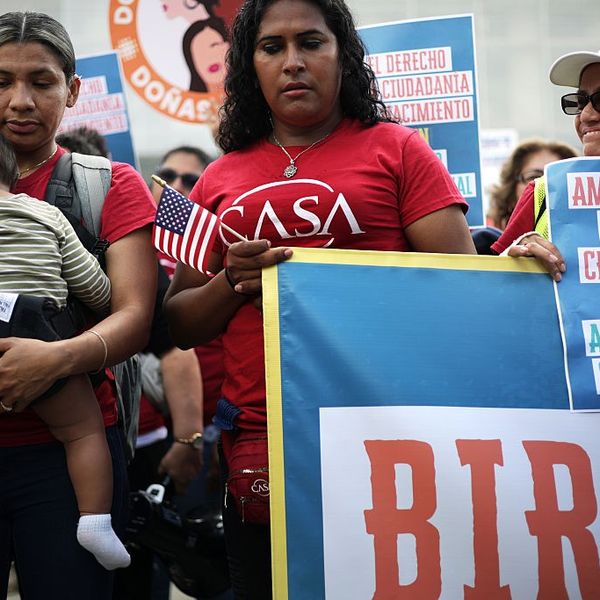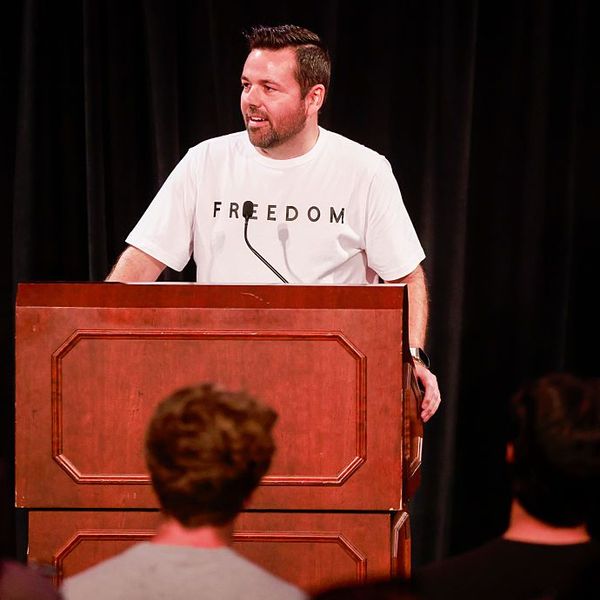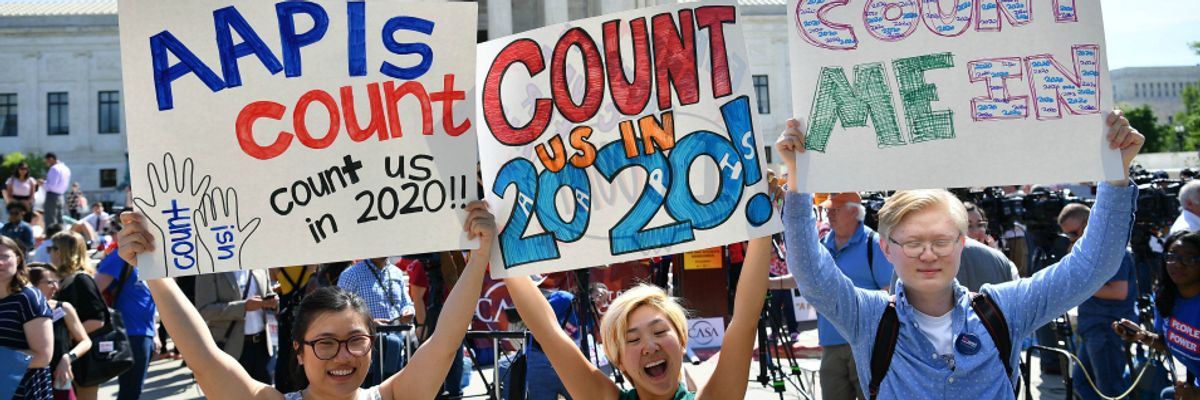This is a breaking news story... Check back for updates...
Civil liberties and immigrant rights advocates celebrated Thursday as the U.S. Supreme Court blocked--at least temporarily--the Trump administration from adding a citizenship question to the 2020 census, an effort critics had decried as a blatant attempt by Republicans to "weaponize" the national survey for political advantage.
"This ruling is a victory for immigrants and communities of color across America. It is a victory for democracy itself."
--ACLU
"The Trump administration's attempt to politicize and manipulate this fundamental pillar of our democracy has failed. Our communities will be counted," tweeted the ACLU. "This ruling is a victory for immigrants and communities of color across America. It is a victory for democracy itself."
Dale Ho, director of the ACLU's Voting Rights Project, argued the case before the high court. In a statement Thursday, Ho said that "this case has never been about a line on a form. It is about whether everyone in America counts. This ruling means they do."
The Supreme Court heard arguments for the case in April, after federal courts in New York and California ruled that Commerce Secretary Wilbur Ross's attempt to insert a citizenship question into the next census--which will be used to draw political voting maps--violated the Administrative Procedures Act. Critics charged that Ross's effort was an illegal attempt to intimidate immigrant communities and undercount people of color to create an electoral advantage for the GOP.
Chief Justice John Roberts on Thursday joined with the court's four liberal justices in the 5-4 decision, which denied a citizenship question for now while still granting the administration another opportunity to argue before a lower court its rationale for such an addition to the 2020 census.
"It's unclear whether the administration would have time to provide a fuller account," The Associated Press noted. "Census forms are supposed to be printed beginning next week."
"The court should have ruled more forcefully against a citizenship question on the census, but a compromise to block it for now is a step in the right direction that protects our democracy," Patriotic Millionaires chairperson Morris Pearl said in a statement. "While this comes on the same day on a disastrous and anti-democratic decision on political gerrymandering, the Supreme Court got at least one major decision right today."
Roberts wrote in the majority opinion (pdf) that Ross's move to add a citizenship question to the census "cannot be adequately explained" in terms of a request from the Department of Justice (DOJ) for data to improve enforcement of the Voting Rights Act (VRA). The chief justice explained:
Altogether, the evidence tells a story that does not match the explanation the secretary gave for his decision. In the secretary's telling, Commerce was simply acting on a routine data request from another agency. Yet the materials before us indicate that Commerce went to great lengths to elicit the request from DOJ (or any other willing agency). And unlike a typical case in which an agency may have both stated and unstated reasons for a decision, here the VRA enforcement rationale--the sole stated reason--seems to have been contrived. We are presented, in other words, with an explanation for agency action that is incongruent with what the record reveals about the agency's priorities and decision-making process.
The ruling comes just weeks after the Supreme Court and district courts in New York and Maryland were made aware of "explosive" evidence--left behind by Thomas Hofeller, a Republican redistricting strategist who died last year--which shows that the GOP fought for a citizenship question to create an electoral advantage for "Republicans and Non-Hispanic Whites."
In a statement from Common Cause that acknowledged Hofeller's documents, redistricting and representation director Kathay Feng said, "The last-minute effort to add the question was clearly a cover-up to mask their true motives--to rig redistricting for partisan and racial gain."
Kristen Clarke, president and executive director of the Lawyers' Committee for Civil Rights Under Law, expressed gratitude that the court "has seen through the charade perpetrated by Secretary Ross, evaluated the record which was replete with examples of lies underlying the justification for adding the citizenship question, and has stopped this travesty from affecting the 2020 census."
"The census is too important to become a toy for government officials to use to achieve political ends. This is particularly so when those ends are discriminatory and would depress participation rates among on communities of color," Clarke said in a statement. "While the issue is remanded to the Commerce Department, time is of the essence, and our government should now turn to the important business of ensuring a fair count in 2020."
Greenlining Institute interim president Preeti Vissa Kristipati, in a statement, welcomed the ruling but also highlighted that "today's Supreme Court ruling doesn't finally settle the issue."
"And even if the citizenship question is kept off the 2020 census," Kristipati said, "at best this is just one step in what will be a long battle--both to stop voter suppression and to end the Trump administration's relentless war against science and accurate data."



